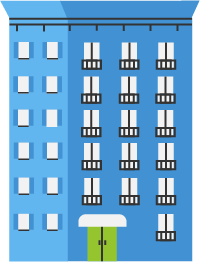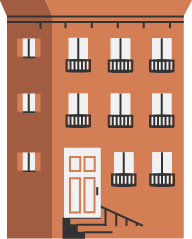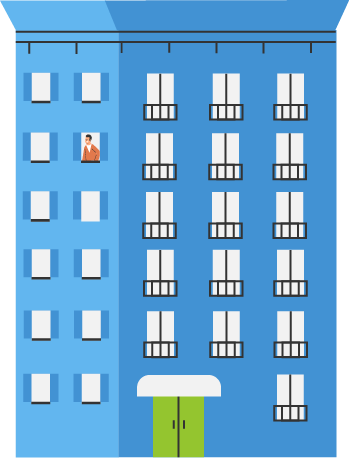
Damages in co-ownership: payment options of syndicates


A co-ownership syndicate that files a claim will have to pay its insurance policy deductible. Should the loss not be covered by its policy or should it decide not to claim, it will have to pay the cost of repairs.
No matter the situation, a syndicate has two options:
- Use its self-insurance fund if it is sufficiently endowed; and/or
- Apportion the cost of the deductible or amount of damages among all co-owners based on their share.
In all cases, the amounts to be paid are considered common expenses. As the name suggests, these must be paid by all co-owners, not just those having suffered a loss.
Deductibles, damage to the building and the creation of a self-insurance fund are all common expenses. This means that a syndicate must apportion these costs among all co-owners.
Coverage extension to cover apportionment after a loss
Should a syndicate choose to apportion costs to cover a loss, each co-owner will be charged based on their share.
In order to protect a co-owner in such a situation, their policy will include an Extension of Coverage – Loss Assessment, under which they will be paid. They can then use that payment to reimburse the syndicate.
Note, however, that such a coverage extension is limited and can only be used to pay if a syndicate has no insurance or if its insurance coverage is insufficient. In addition, in order for such coverage to apply, a co-owner must be insured for the loss that resulted in damages to be paid by the syndicate for which they are charged.
Example: The damages that a syndicate must cover are the result of water infiltration through the roof. A co-owner must have this type of coverage in order to have the apportioned amount claimed by the syndicate paid under their policy.
claims
co-ownership syndicate
condo insurance
loss


















